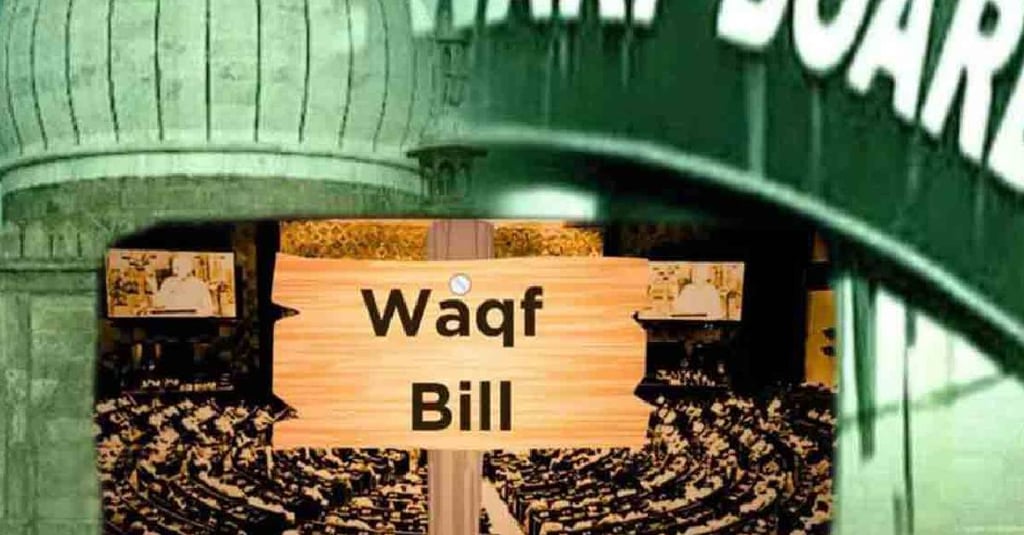Waqf (Amendment) Bill, 2025: Ensuring transparency and fair governance
The Waqf (Amendment) Bill, 2025, is a major step toward making Waqf management more transparent, inclusive, and accountable.
NATIONAL


The Waqf (Amendment) Bill, 2025, has been introduced to address long-standing issues related to the management of Waqf properties in India. The Bill seeks to bring transparency, accountability, and efficiency to the administration of Waqf lands while ensuring the fair treatment of all stakeholders. Over the years, there have been concerns about mismanagement, illegal encroachments, and disputes over Waqf properties, including claims over government and private lands. By introducing crucial reforms, the Bill aims to modernize Waqf governance and safeguard public interests.
Waqf refers to a religious endowment in Islamic law, where a property is dedicated for religious or charitable purposes. Once declared as Waqf, the property becomes inalienable, meaning it cannot be sold, inherited, or transferred. It is meant to serve the larger good by supporting activities such as building mosques, schools, hospitals, and welfare programs. However, despite its noble purpose, the management of Waqf properties has been marred by legal complications, lack of transparency, and allegations of corruption. Many properties have been misused or remain under legal disputes due to incomplete land surveys and administrative inefficiencies.
One of the major issues the Bill addresses is the declaration of non-Muslim and government-owned properties as Waqf land. Over the years, several instances have emerged where private and government properties were claimed as Waqf, leading to lengthy legal battles and community unrest. In Tamil Nadu, a farmer from Thiruchenthurai village was unable to sell his land after the Waqf Board claimed ownership of the entire village. In Bihar, the Sunni Waqf Board’s claim over Govindpur village affected seven families, forcing them into a legal fight. Similar disputes have surfaced in Kerala, where 600 Christian families in Ernakulam are contesting Waqf claims over their ancestral land. Karnataka has also witnessed large-scale protests after the Waqf Board designated 15,000 acres in Vijayapura as Waqf land, causing distress among farmers. The issue has also been reported in Uttar Pradesh, where complaints have been filed against alleged corruption in the State Waqf Board.
According to data from September 2024, across 25 states and union territories, nearly 6,000 government properties have been declared as Waqf properties. The Bill seeks to resolve such disputes by introducing strict guidelines on how Waqf land is identified and managed. It ensures that no property, whether private or government-owned, can be arbitrarily declared as Waqf land without thorough investigation and legal scrutiny.
Another crucial aspect of the Bill is the empowerment of Muslim women. The new amendments aim to provide better economic opportunities for women, especially widows and divorcees, by supporting self-help groups, vocational training programs, and microfinance initiatives. The Bill also ensures that inheritance rights for Muslim women are properly upheld. Moreover, digitization of Waqf records will help in reducing corruption and ensuring fair distribution of Waqf resources. The government plans to set up legal aid centers to help women resolve family disputes and claim their rightful inheritance. The Bill also proposes scholarships for Muslim girls, better healthcare facilities for women, pension schemes for widows, and vocational training programs in fields such as healthcare, entrepreneurship, and fashion design.
The Bill also focuses on improving the welfare of economically weaker sections. Waqf properties have historically been used for social and religious welfare, but due to mismanagement, their impact has been significantly reduced. To address this, the Bill proposes the digitization of all Waqf records, ensuring transparency in land ownership and financial transactions. A centralized digital portal will be created to track Waqf properties, preventing illegal encroachments and misappropriation of funds. The Bill also strengthens financial audits and regular inspections to ensure that revenue generated from Waqf properties is used exclusively for welfare activities such as education, healthcare, housing, and employment support for underprivileged communities.
To improve governance, the Bill introduces new regulations to make Waqf Boards more accountable. It ensures better coordination between Waqf Boards and local authorities, reducing administrative delays and legal complications. The composition of Waqf Boards will also be modified to ensure broader representation. For the first time, the Bill mandates the inclusion of members from different Muslim sects, including Bohra and Aghakhani communities, in State and Union Territory Waqf Boards. It also ensures representation from backward Muslim communities apart from Shia and Sunni members. Additionally, two elected members from municipalities or Panchayats will be included to strengthen local governance in Waqf matters. In a significant move, the Bill also provides for the inclusion of non-Muslim members in the Central Waqf Council and State Waqf Boards to ensure balanced decision-making and prevent unfair practices.
The Waqf (Amendment) Bill, 2025, is a major step toward making Waqf management more transparent, inclusive, and accountable. While Waqf properties play an essential role in religious and social welfare, their governance has been a subject of controversy for many years. The Bill introduces necessary checks and balances to ensure that Waqf resources are used for their intended purpose and that property disputes are resolved fairly. By empowering women, protecting individual property rights, improving governance, and strengthening financial oversight, the Bill paves the way for a more just and efficient Waqf administration in India.
